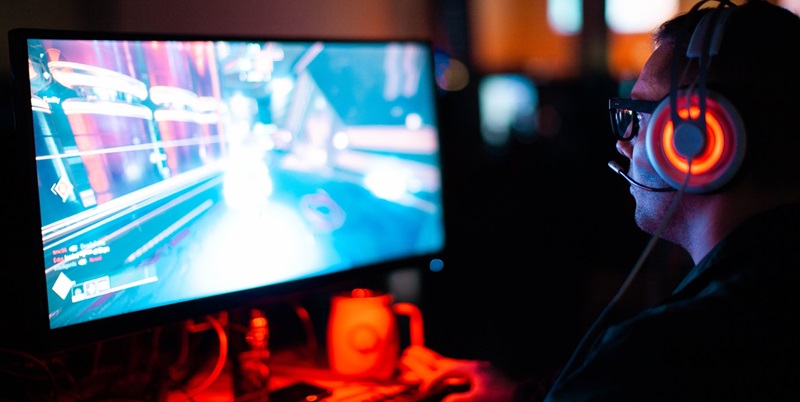The rapid advancement of technology has paved the way for groundbreaking innovations in various industries, and the gaming world is no exception. One of the most revolutionary developments in recent years is the integration of generative Artificial Intelligence (AI) in game development. This exciting intersection of technology and creativity holds immense promise for the future of gaming. This article delves into the potential of Gen AI in game development, discussing its impact on revenue, player experience, game design, controversies surrounding its usage, and the broader implications for the industry.
The Potential of Gen AI in Game Development
Generative AI introduces a paradigm shift in game development, with its potential to not only enhance revenues but also increase playtime and overall player experience. By leveraging AI algorithms, developers can streamline and optimize the runtime of games, thereby creating a more immersive and enjoyable gaming experience for players. Beyond improved runtime, Gen AI enables game designers to explore different visual styles and rapidly test multiple iterations within a shorter timeframe.
The Exciting Possibilities of Gen AI in Game Design
One of the most intriguing aspects of Gen AI is its ability to revolutionize game design. With this technology, developers can rapidly experiment with various visual styles, enabling them to try not just one or two, but up to ten different styles for a game in under an hour. This level of creative freedom allows for unprecedented experimentation, empowering designers to push boundaries and truly innovate in the industry. Additionally, Gen AI enables the quick reskinning of games by simply changing a prompt, allowing for rapid customization and refreshing of content.
Controversies Surrounding the Use of AI in Games
While the integration of AI in game development presents immense possibilities, it has not been without its share of controversies. Some gamers and developers express concerns regarding the reliance on AI algorithms, questioning their potential impact on creativity and the authenticity of game experiences. The fear of AI-generated content becoming formulaic or lacking the human touch fuels these ongoing discussions. Striking the right balance between AI and human creativity continues to be a topic of debate among industry experts.
The Discussion on Gen AI in Game Development at GamesBeat Next
At the GamesBeat Next conference, industry thought leaders gathered to explore the potential of AI, particularly Gen AI, in shaping the future of game development. Panels and discussions shed light on the transformative power of this technology. The conference served as a platform for industry professionals to share insights, address concerns, and collaborate on finding ways to maximize the benefits of Gen AI while mitigating its drawbacks.
AI as a Tool for Enhanced Creativity in Game Development
Contrary to concerns raised about AI stifling creativity, the application of generative AI actually encourages creative exploration in game development. By automating repetitive tasks and streamlining design processes, developers have more time and freedom to focus on conceptualizing innovative ideas and weaving compelling narratives. AI acts as a catalyst for creativity, serving as a powerful tool in the hands of visionary developers.
Generative AI promotes creativity and experimentation in game development, serving as a vehicle for developers to explore uncharted territories. With the ability to rapidly iterate and test multiple design options, game creators can push the boundaries of what is possible, allowing for the discovery of novel and captivating game experiences. This fosters a culture of innovation and serves as a powerful force driving the industry forward.
AI Applications in both Design Time and Run Time for Game Development
The benefits of AI extend to both design time and run time in game development. Design time applications of AI enable developers to streamline and automate tasks such as level design, character creation, and environmental rendering, significantly reducing costs and saving precious time. On the other hand, run time applications of AI enhance player experiences by optimizing performance, ensuring smooth gameplay, and enabling richly immersive virtual worlds.
The goal of integrating Gen AI into games is to improve the player experience and increase revenue. By harnessing the power of AI, developers can create seamless, captivating gameplay experiences that resonate with players on a deeper level. The ability to tailor and customize games to individual preferences enhances player engagement and ultimately drives higher revenue for developers.
Enhanced Engagement and Control for Users on Platforms Utilizing Gen AI in Game Creation
Users of platforms that leverage Gen AI in game creation experience enhanced engagement and a sense of control over their gaming experience. With AI’s ability to generate personalized content based on user inputs and preferences, players can enjoy games that cater to their unique tastes and preferences, fostering a deeper connection with the game and its virtual world.
In conclusion, Generative AI represents a paradigm shift in game development, offering immense potential to enhance revenues, improve player experiences, and ignite a new wave of creativity in the industry. While controversies persist, the collaborative efforts of industry professionals and conferences like GamesBeat Next provide a platform to address concerns and refine the integration of AI in game development. As the industry continues to embrace the power of AI, we can look forward to a future of immersive gameplay experiences that captivate and engage players like never before.

